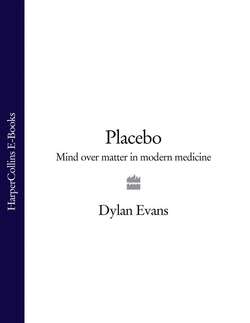Читать книгу Placebo: Mind over Matter in Modern Medicine - Dylan Evans - Страница 13
MIND-BODY MEDICINE
ОглавлениеIf no-treatment control groups were included in clinical trials in addition to the placebo arm, the path would be open to testing the various claims advanced for and against the existence of the placebo effect. But how could this benefit future generations of patients? Arguably, it could help to answer one of the oldest questions in the history of medicine – how much can mind-power alone help the process of physical healing?
This question goes right back to the origin of Western medicine in ancient Greece, when, in the fifth century BC, Hippocrates and his followers began to reject the supernatural explanations that had dominated previous thinking about health and disease. Instead of blaming sickness on malevolent spirits, Hippocrates argued that all disease could be traced to simple physical problems, such as imbalances in the various liquids or ‘humours’ that circulated around the body. This rejection of psychological influences on health laid the foundations for the body-centred approach of modern Western medicine. It also sowed the seeds for a fierce debate that continues to this day and which has split medicine in two.
Plato was one of the first to take issue with Hippocrates and his followers. ‘This is the great error of our day in the treatment of the human body,’ he complained, ‘that physicians separate the soul from the body.’ It was a mistake, he argued, to treat the body without also attending to the soul. Two thousand years later, the same recriminations are still frequently levelled at Western medicine. The rise of alternative and complementary medicine is simply the latest development in a protracted battle between the idea that recovery from disease is a purely physical process and the view that the mind can play a powerful role in healing.
Unfortunately, the exchanges between the proponents of these two opposed views have usually tended to generate more heat than light. Too often each side has assumed the truth of its own position without providing evidence, as if it were obvious, with the result that the position of the other side can only seem like wilful ignorance driven by a hidden agenda. The believers in alternative medicine accuse orthodox medicine of narrow-mindedness, while the sceptics see the rhetoric of the mind-cure movement as an excuse for all manner of quackery, fraud and deception. There is some truth in both of these criticisms. There have undoubtedly been many exaggerated claims advanced on behalf of faith-healing, and the American magician James Randi has exposed many so-called ‘miracle cures’ as mere illusions and conjuring tricks. On the other hand, many scientists have been too quick to dismiss the whole area of mind-body medicine without examining the evidence fairly. It is time we stepped back and attempted to apply the same scientific principles to the question of mental healing that we apply to physical therapies. Proper research into the placebo effect offers an excellent place to start. In fact, it might be just what medicine needs to heal itself.
